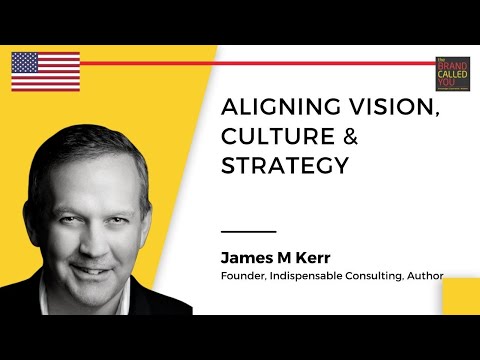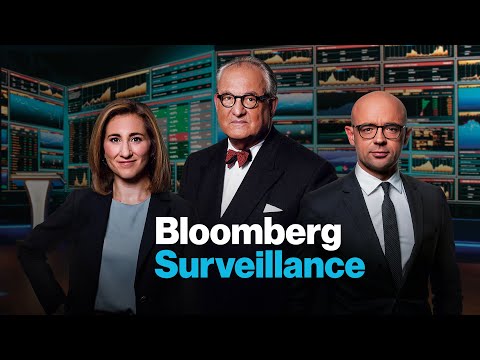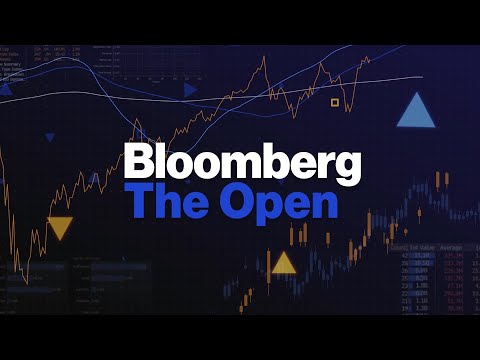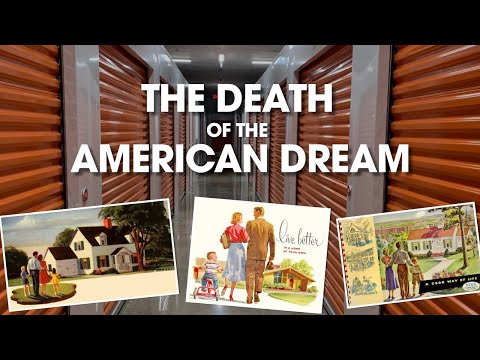Key Elements for INDISPENSABLE BUSINESS | James M. Kerr | TBCY

Welcome to another episode of The Brand Called You, a vodcast and podcast show that brings you leadership lessons, knowledge, experience and wisdom from hundreds of successful individuals from around the world. I'm your host, Ashutosh Garg and today I'm delighted to welcome a very, very accomplished individual from the US, Mr. James M Kerr. James, welcome to the show. Ashutosh it's so good to be with you today. Thanks for having me. Thank you. James is the founder of Indispensable Consulting. And he's an author. And I've often said I'm very partial to authors.
So James is an author of six books, his latest one being Indispensable Build and Lead a Company Customers Can't Live Without. So James let's start with talking about indispensable consulting. Tell me about the work you do. Well, you know what it is, we've been consulting for over 30 years. And I hate to admit that. We do strategy work, we do vision work, we do culture work. We're focused on helping senior leadership teams make the changes that they want to make in their organisations. And I do a fair amount of coaching too. So that's the fun part.
Terrific. And I can see a book just behind me. And I love your bar, which in front of it, you're sitting, but you want to have a drink one day. I should be in New York in summer, so certainly look forward to that. Excellent. James, tell me what was the thinking behind the name Indispensable? Well, you know what, the reality of it all is the indispensable means it's something you can't live without. And
we changed the name to Indispensable Consulting, when I thought about writing a book about indispensability. And we just thought, you know, why not make that foot of brand connection. But it really is a great word to kind of brand around, because every business that you work with wants to be that business that their customers can't live without. So that's what the books about, that's what my consulting practice is about. So it just made sense to tie the two together. Fascinating. And you know, when I was reading about you, you mentioned that you support inspired leaders to achieve their vision for the future. Help me understand this with maybe some examples or anecdotes. Sure, you know, yeah, definitely, you know, that the idea that we've got is, you can craft a vision statement. And if you do, you'll sound like every other business in your industry, so rather than
falling into that trap, why not craft your vision, as a story that's compelling. It's engaging, where your people can see themselves being really successful by helping you achieve that vision. So as a consequence, we have basically said, when we do vision and strategy work, we start with a vision story, I can share a couple stories with you in the audience, if you like. Yeah, I would love that. Sure. You know, we were working with a client recently, and we decided to get the story developed. It was written in about
15 pages at this really, really, I think, fine explanation of where the business was going. It contained all kinds of details about not only the goals and objectives, but what it was really like to work inside that business. Talked about the people that were there, talked about the tools they use, talked about how they interact with them among themselves and with their customers. And we decided, in order to institutionalise it, we take the 15 pages, create a magazine, and then distribute the magazine through the mail. So that each employee would get a copy of this thing coming to their home that describes the vision for the company that they work for. And it worked really well
because people didn't expect it. They were really surprised when it was received. There was a little cover letter that we included saying, you know, we strongly recommend that you read this and it was a smash hit there because people saw something that was kind of cool and different and it wasn't just a presentation. So some of what we do when we talk about vision storytelling. Fascinating. And you also talk about your the multifaceted change initiatives that you have worked on, centred on strategic plans, culture, redesign and organisational effectiveness.
Help me understand what you do. Yeah, so typically, when we're doing a change, a piece of change work, we'll start with that story with that vision, what we are trying to achieve? What will the place look like once we're done with implementing the changes? So that's sort of the vision strategy piece, we translate the gaps between where the businesses at the moment we start and where they want to go as per their vision, into projects and programmes. And then those projects and programmes get executed over the course of time. And those changes are achieved, and the vision is achieved, and so on. So the multi faceted
part of it is you've got a vision, you've got a plan, and then you've got a bunch of projects that you staff and find an execute in order to drive the changes that you need to make. Okay. And would you be able to explain this with maybe an another example? Sure. So let's use that same one that we started with a moment ago, the vision story called for a series of cultural changes, the client that I was working with, came from a very rigid, top down, sort of a command and control organisation structure. So one of the projects that we identified was something about flattening the organisation a bit, and changing the way people report and to supervisors and so on. So the very next project
that we did was focused on organisation design. And then the organisational design was flattered, there were less levels of managers, managing managers and so on. And we were able to empower workforce, and so on, which were all elements of the vision story, so there was a difference between saying it and doing it. And then the work design project was one of the ways that we showed that we were actually going to do something with this vision story that we crafted. Fantastic. So you want to do a lot of work on culture. I wanted to ask you first to help us understand, how do you define or look at culture? This is a great question. And it's one that I get quite a bit. Because I think people
ordinarily put a lot of, you know, emphasis on the word, and they get kind of confused. And they think of it as this big, heavy, you know, complex thing. But when you cut away all of that sort of noise around the word, and you really think about what is it mean? All it means is, it's the way people behave. So think of culture, any culture, a culture of a country,
you know, what's the culture of the country, it's the way that people who live in that country behave. And same is true with the business, the culture, company culture is really how those people operate inside the business. So culture change is about helping those businesses change the way their people operate, the way those people behave with each other, and with your customers. And you know, you're also a strategy guru. So I want to ask you, how does culture impact strategy? I kind of view it the other way around, I think we've got to start really with strategy and vision. And then align culture and organisation around that. So the important part is the
alignment, if your strategy is to go out, and let's say grow your business through impeccable service delivery, we've got to make sure you've got a culture and an organisational design that lets your people deliver that impeccable customer service. And that requires sometimes a change in the way people behave. And that's where culture change might be part of a strategy that's about competing on service. So my next question, again, on culture, is that,
you know, when you look at very large corporations, they have, over the years, established a strong culture. And I love the definition you gave, it's the way people behave, how do these large companies continue to transfer that strong culture to new recruits or new members of the team? Sure, you know what? And it's true, even at a country level, right? It's the same thing. So culture gets passed down from generation to generation, through the stories we tell, through the way we operate, through the decisions we make to the places where we place value, and so on. So, so sure they get passed down by, you know, to new recruits, by the people that have worked within those cultures for a while. And you can change it by engaging people in the conversation around, you know, what are we trying to achieve as a business? How do we want our business to operate? How do we want to act with each other? How do we want to treat our customers and other stakeholders, and you start sort of getting that input. And then you see there are opportunities for improvement, there are opportunities to change. And that's what you really want to capture in a culture of change initiative is other
people's ideas about what's necessary in order to help the business get where it wants to go. Interesting. And a question that I'm often asked is that in today's world, of startups, with almost every country, encouraging more and more startups, how does a startup founder or a startup entrepreneur, build a strong culture in their own company? Well, again, I would offer that startup team needs to be thinking very deliberately, about what kind of culture they want to create. Because when they're starting out, it's going to default, if you don't do it deliberately. Meaning that it is that startup team of people, however they operate, whatever values they place, where is going to determine what the culture will be for anybody that they bring in, to support them. If you're deliberate, you can create
that team based culture that high performance, culture, etc. But I do believe it's something that you've got to do with your eyes wide open, and with a very clear vision for how you want your culture to actually operate. So you know, I was approached by a startup entrepreneur once and said that, you know, I want to build a strong culture. And I asked him a question. I said, I'm working on the assumption that everything that you want to implement in your company as a part of your culture applies to you as well. And he says, No, it doesn't. I mean, I'm the founder. I'd love to get your perspective on that.
Yeah, you know, yeah, it's not something that those people over there do. You know, we're all as leaders, we're all part of that culture. And we are models that people are watching all the time. And I often counsel my clients, particularly the top leadership teams that I work with, to realise that it's not what you say, it's what you do. So if you say that, you know, you want to have a lot of strong communication up and down the line, you know, top to bottom in your organisation, yet every time you're in the office, the door is shut, while there's an executive assistant, that's the gatekeeper. So nobody can go and talk with you except going through them, then you're actually not living what you're saying. And people will
realise communication is not that important. Because look, the door's closed. You know, I tried to get an appointment, and I can't see the person for three months. So, that kind of thing is really important to recognise this a top leader, people are watching what you're doing, they're watching your feet. They're watching your feet. They're not listening so much to the words,
because words are kind of inexpensive and don't necessarily mean much, unless they're followed up by action that they can be observed. Well said. So, you know, I'm going to ask a few questions to you about coaching, as you said, you are a coach as well. Tell me about what is your approach to coaching? You know, it starts out sort of baselining with the person, you know, where are they today on their journey, as a leader, and I asked them a bunch of questions about things that they are doing things they think they do well, we have some assessments that we have them do to help get a clearer picture of what's important to the individual. And then we do a 360 with some of the colleagues that that person works with, and we tried to get a good cross cut. We want to see what it's like to work for this person, with this person,
and have this person work for us. And what's astounding is sometimes that self reflection is not what we're seeing. When we talk to people that they work with, I have a woman that I'm working with right now that, you know, believes that she's well respected by her team and that her boss loves her and all that. But when we dug a little deeper, what we saw was, this was a person that sort of kissed up, but kicked down. So the boss did like her,
she was always very positive, and yes, and agreeable and all that. But her people really didn't like working for it, because they felt like they weren't treated well. And with much respect. So then that became a theme that we centred the coaching around, to be able to help her kind of, really gain the patience that she needed to listen a little more to her people, to help develop them a little bit more, and build a team that she really wants to have to be the leader of. Okay. And I've got time for one more question on coaching before I move to your book.
This is the world of the millennials and the Gen z's, we're beginning to see leaders coming up at mid level, senior levels, I have two related questions for you. One is how are organisations preparing to receive a very, very different generation of thinkers and leaders from the millennials and Gen z's. And what kind of coaching should be provided to them? You know, I would offer this I think that every generation has great strengths and opportunities to really shape the future of the places where they interact, whether that's, you know, in a business or in their homes and communities, and society in general, right. And what we've got to do is not be quite so judgmental about all those millennials, they're this fill in the blank, whatever thing you want to do, and rather so to look at the positive side and see the energy and inspiration in someone and try to leverage that as a means of making those leaders better. And I do work with a fair amount of what's known as high potentials,
right? These are people that have maybe some lower level supervisory responsibilities, or they may be in middle management somewhere. But somebody, sort of above them, if you will, has identified them as someone with the potential to one day be in the C suite. And they asked me to work with these people to help develop them so that when those opportunities arise, they'll be ready to step in. And what I find in working with these folks is that, you know, a lot of the stereotypes found simply aren't true, you know, one of the stereotypes of the group is all they're, they'll get bored, and they'll want to move around. And,
you know, we can't invest in them, because they're going to leave for another opportunity. That's not been the experience, at least not in the folks that I'm working with. And I agree with you completely, completely agree. So James, let's talk about your book now.
Tell me about INDISPENSABLE: Build and Lead A Company Customers Can’t Live Without, first tell me whether this book is available on Amazon for my viewers and listeners? And then tell me what was the hypothesis of your book? Yeah. Yes, the books available on Amazon, and other places online, where you like to buy books. The thesis is really simple. I'm working with some really great businesses over the years, I realised I had a formula that every one of the most successful of my clients have. And I felt like gee, maybe that formulates the difference. That's the difference between
a business it's good and a business. That's incredible. That's actually indispensable. And that became the thesis of the book. And it's, you know, includes things around leadership and vision, people management and how to attract and retain great talent. It's into culture, it gets into change management, how you want to be able to do those things in a very consistent way. And be again, those are
deliberate. There's that word again, but be deliberate in the way that you drive change, and so on. So it worked. It was those elements that sort of made up the premise of the book, and then I fortify that with Over 50 examples from industry, many of them coming from my own practice that shows how businesses embraced these concepts and actually went about the work of instituting them within their operations. And when did you release this book? Yeah, great question. The book came out in February of this year. So it's sort of fresh off the presses, if you will, was well received, and moved up to the Amazon hotlist with when it was released. So very proud of that.
And, yeah, it's been a good ride with this. But this is book number six for me. I'm actually in the middle of writing book number seven. And this one will be focused on coaching. Oh, wonderful. So I got time for one more question. And I want to understand from you about your earlier five books, tell me about
what the subjects were? The first couple of books were on technology. So I wrote, I wrote one book, my very first book was called the IRM. imperative. And I won't bore you with all five of the previous books. But that first one was important in that, it identified the strength that a book can have in shaping someone's career, because it came out early, I wasn't even 30 yet. And I had a book that basically, the premise of it was, information is an asset that should be managed. And in fact, we should manage it so well, that we could actually put it on a balance sheet that we could put some value to our data, and actually say, it was something that was an asset that could be leveraged. That concept is
still around today. And now we've got all kinds of technologies and so on big data, data warehousing and data analytics, and digitalization and all that stuff. But that was a concept that I helped to sort of develop. And I got really good response back when that book came out. And it launched my consulting because I had so many phone calls about how do we do this? What can we do, I realised I could actually start a consulting firm helping businesses do a better job and their data strategies. And that's how my business started. So I have time for one more question and given the fact that you are a strategy guru, you can solve, you speak about culture, you are a coach, you are an author.
For all the young viewers and listeners, what would your advice be to young individuals starting off on their career in the corporate world? I would say learn about an embrace an abundance mindset. There's plenty for everyone. Don't operate from this place of scarcity. We've got a you know, keep your secrets and hide your stuff and keep the clip. Now share it, share what you know, how people on the way. What you'll find when you think about the world as being about
abundance, is you'll realise that all the things that you want for your own life come to you. So that would be my advice to a young person. I love your comment on work from a position of abundance rather than scarcity. I think that's an amazing piece of advice you've given. But on that note, James, thank you so much. It's been such a privilege speaking to you. Thank you for talking to me about consulting, about indispensable consulting. Thank you for talking to me about
culture, about coaching, and most importantly, telling us so much more about your book. Thank you again, good luck. Thank you, Ashutosh. The pleasure was all mine. Really appreciate it. Thank you. Thank you.
Thank you for listening to The Brand Called You, videocast and podcast. A platform that brings you knowledge, experience and wisdom of hundreds of successful individuals from around the world. Do visit our website, www.tbcy.in to watch and listen to the stories of many more individuals. You can also follow us on YouTube, Facebook, Instagram and Twitter. Just search for The Brand Called You.
2022-01-11 20:23


